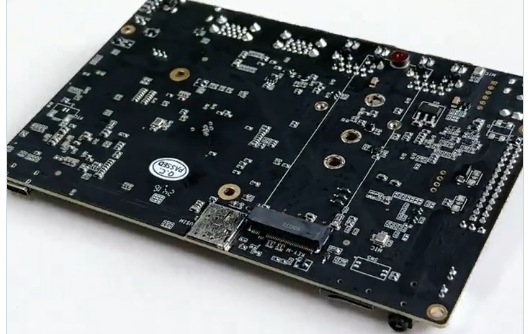Nvidia, the reigning titan of AI chip manufacturing, recently unveiled an earnings report that left most of the business world green with envy. Sales soared by an astonishing 122% in the second quarter, and profits? They more than doubled. The outlook for the coming quarter remains robust, painting a rosy picture for the company’s financial health.
In essence, Nvidia’s numbers were dazzling, a tour de force in an industry where such feats are rare.
Yet, in a paradox that seems all too familiar to Wall Street veterans, Nvidia’s stock (NVDA) took a 7% hit following the release of these stellar results on Wednesday night, with the decline persisting into Thursday. For a stock that has already catapulted more than 150% this year, this dip is hardly a cause for panic. Instead, it reveals more about the fickle nature of investor sentiment than it does about Nvidia’s performance.
WEEKLY MARKET REPORT 31/08/2024
NVIDIA Earnings: NVIDIA reported a 122% year-over-year revenue increase, surpassing expectations with $30 billion in sales, against the anticipated $28.7 billion. This growth was largely driven by the data center segment, fueled by demand for AI… pic.twitter.com/KgGv4ynwBS
— Yavuz Akbay (@econakbay) August 31, 2024
Here’s the twist: Wall Street has been riding the AI hype wave for the past 18 months with an enthusiasm that borders on fanaticism. Wherever there’s a hint of AI-driven profit, investors have been eager to throw their money into the mix. Nvidia, once just another niche player in the computer chip market, has transformed into the darling of this spending spree. Over the past five years, its stock has ballooned by an incredible 3,000%, elevating it to the ranks of the most valuable companies on Earth with a market cap touching $3 trillion—rubbing shoulders with the likes of Apple and Microsoft.
Given Nvidia’s central role in the AI narrative, its earnings reports have taken on an almost theatrical significance, akin to a blockbuster movie premiere. Each quarter, the anticipation builds, the memes fly, and market pundits engage in a frenzy of speculation. Nvidia has consistently shattered expectations, training investors to brace themselves for yet another surprise each time earnings are announced.
But then, this Wednesday, the narrative shifted. Yes, Nvidia exceeded expectations again, but there was a sense of anticlimax. It’s as if the audience came expecting a show-stopping performance, only to find the star performer had been replaced by an understudy. The talent was still there, the performance still electrifying, but it lacked that certain magic, that unique spark.
#Investor #News #Equities
What’s Interesting: Despite the slight decline of #Nvidia $NVDA (PE🔻5) other prime tech stocks & the overall market did well today.
Some analysts anticipated the fall of both.Nvida is a definite bellwether for AI sector, but not the other two. 🤖😄 pic.twitter.com/IQK18Ppzaf
— Erik CA Holm (@ErikCAHolm1) August 30, 2024
This subtle undercurrent of disappointment wasn’t the only thing casting a shadow over Nvidia’s latest performance. As the initial AI buzz begins to fade, Wall Street is starting to sober up, taking a more critical look at the actual value of AI technology and its potential to generate real revenue.
As noted by my colleague Clare Duffy, Big Tech has spent billions on AI, yet the tangible returns remain elusive, leading to a growing sense of impatience among investors. Sure, we’ve got innovations like ChatGPT and Google Gemini, but they haven’t quite turned the world on its head. What people are really looking for is AI that makes the mundane more manageable, yet tech companies keep pushing AI to automate activities many still want to do themselves—like writing heartfelt letters or creating art.
There’s both a silver lining and a storm cloud for Nvidia’s investors. Some analysts are whispering about an AI bubble, a frenzy that might be nearing its inevitable burst. But Nvidia isn’t a fresh-faced startup hyping up an uncertain future. If the AI craze is a gold rush, Nvidia is selling the shovels. Their chips, beloved by gamers long before the AI hysteria, will likely remain valuable regardless of how the AI story unfolds—whether it becomes the next digital revolution or a footnote in tech history.
Is Nvidia make or break for the whole market? As the stock of the decade, any weakness could send the market into a tailspin. Nvidia’s guidance is crucial—it’s all about what comes next in AI. #Investing #Nvidia #AI #StockMarket #Chips pic.twitter.com/9bH35pPgPf
— Mark Tepper (@MarkTepperSWP) August 28, 2024
Jensen Huang, Nvidia’s CEO, reminded analysts this week that Nvidia’s chips power far more than just AI chatbots. They’re integral to everything from ad-targeting algorithms to search engines, robotics, and recommendation systems. The data center business alone drives nearly 90% of Nvidia’s total revenue.
However, there’s a looming challenge. Nvidia’s hardware is notoriously complex and hard to replicate, making it essential even for tech giants like Google and Amazon. But these very customers could one day turn into competitors, as nearly all are racing to develop their own AI chips, setting the stage for a new chapter in this unfolding saga.
Major Points
- Nvidia’s second-quarter sales surged by 122%, and profits more than doubled, yet its stock fell by 7% following the earnings report, highlighting investor fickleness.
- Despite Nvidia’s stellar financial performance, the initial excitement around AI-driven profits is waning, leading to more cautious investor sentiment.
- Nvidia’s stock has skyrocketed 3,000% over five years, turning it into a tech giant, yet the latest earnings didn’t deliver the expected ‘wow’ factor, causing some disappointment.
- While Nvidia’s chips remain vital across multiple tech sectors, concerns are growing about an AI bubble as returns on AI investments remain uncertain.
- Nvidia faces potential competition from its own customers, like Google and Amazon, who are developing their own AI chips, possibly reshaping future market dynamics.
TL Holcomb – Reprinted with permission of Whatfinger News



